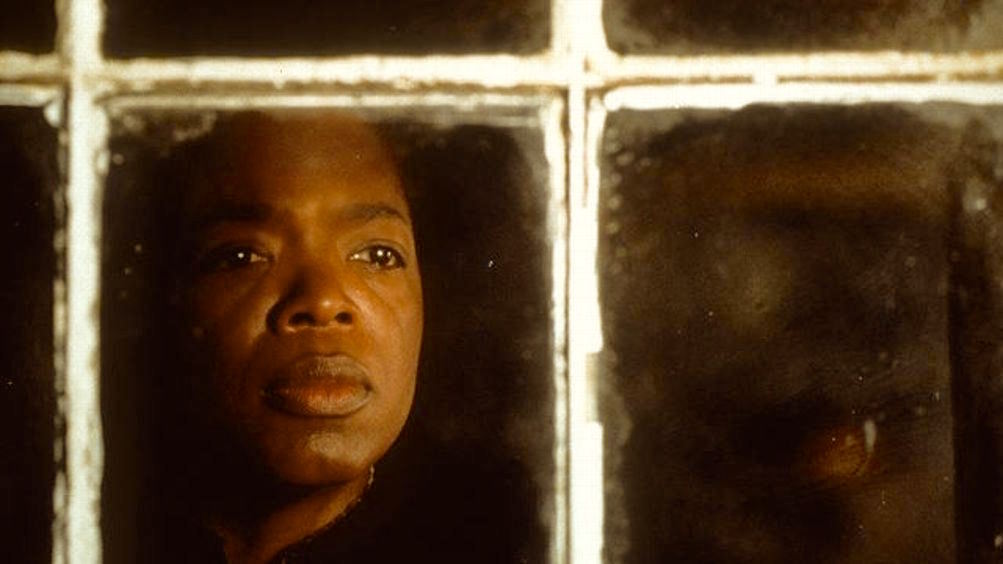Wednesday
Mia Brett, legal historian for Editorial Board, has written a fascinating (albeit somewhat disjointed) article linking America’s history of chattel slavery to the anti-abortion movement. It caught my eye because it helps me understand some of the rightwing hatred of Toni Morrison’s Beloved.
The article argues that American Whites have been focused on controlling Black female bodies all the way back to 1662, when Virginia passed a law
that made race and enslavement an inheritable condition through the mother. This law became the basis of the American racialized chattel system of slavery. It also clearly linked racial construction and the continuation of white supremacy to reproduction. Enslaved Black women would produce enslaved Black children while white women would produce free white children. The race of the fathers did not matter.
This law became even more important when importing slaves from Africa became illegal, making Black female reproduction the only way to generate more slaves. Women were sometime raped by their owners, sometimes forced to breed with fellow slaves.
In reaction, Brett notes, abortion became a way for enslaved Black women “to not only control their own reproduction, but also resist the slave system.”
After the Civil War, white supremacists became obsessed with the idea that they would be replaced by people of color (replacement theory), an obsession that continues today with figures like Fox’s Tucker Carlson. As a result, such people did not want white women aborting pregnancies and, through miscegenation laws, they tried to ensure that those babies were not of mixed race.
Obsession with Black reproduction also was to surface amongst such people as Ronald Reagan, who attacked “welfare queens” for supposedly having babies just so they could collect checks. I have personal knowledge of how, in the 1970s, even Minnesota Democrats (I suspect they’re now Trump supporters) were calling for the forced sterilization of urban Black women.
There’s an apparent contradiction here, however. You’d think that conservatives would be for abortions in this case. And in fact, abortion was not a big deal with mainstream conservatives at the time. That’s why Row v Wade passed the Supreme Court fairly easily with a 7-2 vote.
I can also report that my conservative aunt and uncle were, at the time, strong supporters of Planned Parenthood. Thinking back, I now suspect it was because they wanted to control Black reproduction—just as, at the time, Black Panthers brandishing firearms prompted many conservatives to support meaningful gun control.
All that has changed, of course. Now the right is united against abortion, including Black abortion. But even when people have changed their positions, the underlying obsession with controlling women’s bodies has remained the same. This may explain why Beloved gets attacked.
At first glance, it just seems that many Whites don’t want controversial novels about race. But there are other controversial books about race on the AP list, most notably Ralph Ellison’s Invisible Man and Richard Wright’s Native Son. In the latter, a Black man inadvertently smothers a white woman and then cuts off her head so that he can stuff her body in a furnace. I haven’t heard many calls for that book to be banned.
What may most disturb White readers of Beloved is not the vicious whipping of a pregnant Sethe but the scene where the nephews of her slave master suckle her. “They stole my milk,” she reports years later to the man who loves her. The lashing occurs after she reports the act to her mistress, the slave master’s sister.
One can see why the nephews would take her milk. Their uncle is a grim sadist with no softness, and some deep part of them longs for mother tenderness. And because of the dynamics of slavery, they can force Sethe to mother them. Obsessed with Black fertility, they demand it for themselves.
After she escapes, Sethe doesn’t have an abortion but she takes the next logical step: to keep her family from being taken back into slavery, she kills her new-born daughter and tries to kill her other children. There’s a terrible logic to the act: she exercises the only power she has to fight back against a hideous institution. In one way, the act saves her—she is so obviously mad that her master doesn’t reclaim her—but the daughter (named Beloved) comes back to haunt her for decades.
In other words, Sethe rebels against a system that uses her fertility against her. No wonder the right has turned the novel into a cause celebre.


